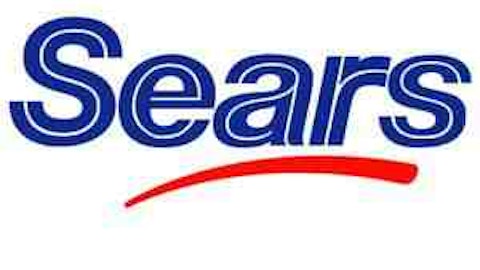A favorite of environmental advocates and affluent shoppers everywhere, Whole Foods Market, Inc. (NASDAQ: WFM) is the largest retail chain of natural and organic foods in America. Aside from selling just about every healthy edible under the sun, WFM gives its customers an immersive experience, from historical beer exhibits to seafood preparation classes. Additionally, the company is committed to business practices that will reduce its carbon footprint, like trash composting and its ban on plastic bags. As expected, however, there are tradeoffs for going green; specifically, its costing customers a lot more ‘green’ at the cash register.
On average, a basket of groceries that normally costs $100 at Wal-Mart (NYSE: WMT) costs $215 at Whole Foods, assuming that organic alternatives can be found for every item. Interestingly, the American public doesn’t seem to care about this expensive differential, as U.S. organic food sales have increased by 14 percent each year over the last decade, compared to non-organic food sales, which have remained relatively flat. Supported by strong top and bottom-line growth over this same time period, investors have seen shares of WFM almost tripled in value. Looking at the shorter-term, the stock has gained 30.3 percent since the start of 2012. Just like the food on its shelves, though, this growth comes at a higher cost. Valuation metrics show that at $90 a share, WFM is currently overvalued, and may be pulling investors into a trap.
Let us first look at the factors driving this stock’s upward momentum in more detail, specifically revenue and free cash flow growth. Since the end of the recession, revenues have grown at an average annual rate 8.3 percent, which is more than double the industry average. Whole Food’s revenues are also growing faster than every single one its competitors when comparing it to WMT (3.4%), Kroger Co. (NYSE: KR) at 5.9%, Safeway Inc. (NYSE: SWY) at -0.4%, and SUPERVALU Inc. (NYSE: SVU) at -6.8%. WFM has also been able to grow its cash hoard noticeably during this same time period, as its free cash flow has increased by 132 percent. Once again, this is higher than every single one of the company’s peers: WMT (-7.8%), KR (1.7%), SFY (41.8%), and SVU (13.5%).
Whole Foods has also seen its Earnings-Per-Share more than double over the past few years, and the company reported yesterday that Q2 EPS was $0.64, beating analyst estimates of $0.59. Understandably, investors are paying a premium for these advantages, a fact that can clearly be seen when looking at the company’s P/E multiple. Currently, WFM trades at a multiple of 43.7 times earnings, which is greater than the industry average of 31.7X, and competitors like WMT (13.0X), KR (23.0X), and SWY (11.1X). Additionally, the company’s P/CF ratio of 21.3X is bounds higher than any comparable stocks. It is important, though, to determine if investors are overpaying for this growth; in this case, the PEG ratio is the best measure to use. Typically, a PEG of 2 or above signifies that investors should hold off on purchasing a stock until its price falls to a more reasonable level. At 1.9, WFM is on the verge of being overvalued. Coupled with the fact that WFM’s PEG is higher than that of competitors like WMT (1.3), KR (1.1), and SWY (1.2), investors may be wise to wait.
Reasonably, hedge fund sentiment on the stock is mixed, as successful managers Anand Parekh and Ken Griffin hold puts on the stock, and funds like Caxton Associates LP and Columbus Circle Investors elected to decrease their holdings at the end of last year. However, funds with the largest percentage of WFM in their portfolios – most notably Sigma Capital Management and Navellier & Associates – bought more shares in 2011. All in all, it is up to each investor to decide if Whole Foods is pulling them into a ‘growth trap’, before becoming shareholders. Though the company is growing at very impressive rates across the board, it may be smart to wait until WFM trades below its current all-time high of $90 a share.



